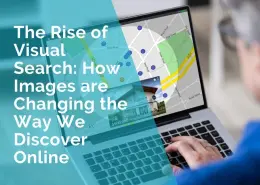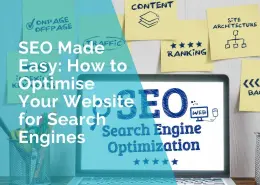Painful Truth About Getting to the Top of the Search Engines
“How do I get my website to come up on top of the search engines?” – That is one of the most frequently asked questions I get asked by clients. The truth is, it’s not easy. With millions of websites on the internet right now and thousands being added each month, everyone is striving to do the same – to come up in the first spot (or at least on the first page). In reality there are only 2 ways you can come up on top:
1. Set up a pay per click advertising campaign, such as Google Adwords
2. Optimise your website for keywords (also known as Search Engine Optimisation)
Keywords
Before you embark on either of these marketing methods, you need to understand about keywords. Keywords or key phrases are the words that visitors type into a search engine to find a service or product.
The best keywords are those that are commonly typed in by your potential customers, but which aren’t used much on your competitor’s websites. In other words, if you optimize your pages for keywords your potential customers use a lot, but your competitors haven’t thought of, you win. But here’s the catch…you’ll never get to know which are the best keywords for your website simply by guessing.
There are many tools you can use to find what keywords people are using. One such tool is Google’s Keyword Planner https://adwords.google.com/KeywordPlanner
If you are serious about finding the perfect keywords, I would recommend using a tool called Wordtracker – www.wordtracker.com. Although you do need to pay a few dollars for this service, it is far more sophisticated and gives you much more information. Through a series of simple steps, Wordtracker identifies the best keywords to use on each page of your website. Wordtracker’s suggestions are based on over 300 million keywords and phrases that people have used over the previous 90 days. (In other words, there is no “guessing” when you use Wordtracker.
Everything is based on the keywords millions of people have actually typed into search engines.) Best of all, their competitive analysis tool enables you to find those “best keywords” – the ones your potential customers use, but which your competitors don’t know about.
Once you have identified the best keywords, you can either run a pay per click marketing campaign or optimize your website for search engines.
Pay per click
Pay per click advertising is when an advertiser (you) pays for each qualified click that sends a search engine user to your web page. PPC requires you to bid on keywords or phrases that relate to your business.
The best known pay per click services are Google AdWords and Overture. Generally you can bid from as little as a few cents per visitor. However, the more you bid the higher up in the search engine your advertisement will appear. Pay per click is a great way to deliver targeted and qualified visitors to your website at a very reasonable price. It is a good idea to experiment with different PPC search engines to find the one that works best for you. In addition, you will need to spend time testing your keywords and ads.
There are hundreds of pay per click search engines. For more information check out: Google Adwords – https://adwords.google.com Yahoo http://searchmarketing.yahoo.com/ Pay per click search engines – http://www.payperclicksearchengines.com/
Search Engine Optimisation
Search engines prefer to list sites that contain good content. In order to rank high you need to create a website that has maximum content and which uses lots of relevant keywords to your service and products.
Remember to find out what keywords your customers may be searching on go to: https://adwords.google.com/o/KeywordTool
http://www.wordtracker.com Once you decide on the keywords, use them in
(a) Your website’s domain name
(b) The title of your page – This is displayed in the top bar of your browser window
(c) The heading of your home page
(d) The first paragraph of your home page
(e) Meta tags – Keywords, page title, description
(f) Titles of your graphics
(g) Alternative (Alt) tags – These appear in place of images when the browser preferences are set for text only.
Whilst it is important to use keywords as much as possible, it is also important you use them only if they are relevant and do not sound awkward.
If you spam your keywords you may be penalised or even banned by some search engines. Another important thing to consider when trying to optimize your website for search engines is to have as many relevant links pointing back to your website from other complementary sites. This can be done through link exchanges or by writing articles/posts and submitting them to article directories or forums.
Ensure you include your domain name at the end of each article/post. If this all seems too overwhelming, you can employ the services of a Search engine optimization company, who will make your website’s content more search engine friendly.
In fact, I highly recommend if you decide that Search Engine Marketing is one of the main ways you wish to promote your website, you do hire an expert. Please remember, having your website listed at the top of the search engines is not the only way to promote your website.
There are lots of other ways you can get visitors to your site for little or no money. You may wish to read my article: “30 ways to promote your website on a shoestring budget”.
*****
by Ivana Katz
 Websites 4 Small Business – www.web4business.com.au; Ivana makes it easy for you to get your business online very quickly. If you’re looking for a professional and affordable website designer, CLICK HERE and download your FREE copy of “Ultimate Website Design Secrets Blackbook – 10 Bulletproof Strategies for Designing an Outrageously Successful Website”
Websites 4 Small Business – www.web4business.com.au; Ivana makes it easy for you to get your business online very quickly. If you’re looking for a professional and affordable website designer, CLICK HERE and download your FREE copy of “Ultimate Website Design Secrets Blackbook – 10 Bulletproof Strategies for Designing an Outrageously Successful Website”














